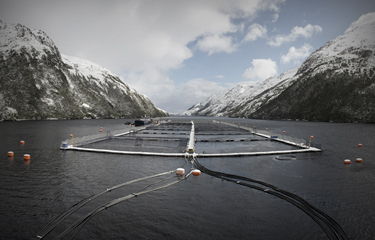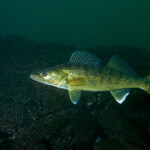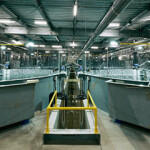Nova Austral claims it may shut down if Chile proceeds with sanctions

Punta Arenas, Chile-based salmon farmer Nova Austral may be forced to close operations throughout the country if sanctions levied by the Superintendency of the Environment (SMA) are allowed to go forward, according to documents filed by the company’s lawyer, Julio Recordón, with the country’s Third Environmental Court.
In July 2022, SMA accused the farmer of overproduction between 2015 to 2017 at three grow-out centers in the Alberto de Agostini National Park. In response, it moved to revoke the environmental license for those centers and apply a fine for the artificial alteration of the seabed at another center. If Chile’s Third Environmental Court permits the penalty, it would mark the first time that an environmental permit has been revoked since the creation of the SMA.
The company claims that the sanctions would condemn it “quite possibly to the closure of its operations in Chile, as the impossibility of operating three of its salmonid grow-out centers will necessarily lead to an unsustainable adverse financial situation,” the legal appeal filed by Nova Austral stated.
A report recently released by consultancy Indexsalmon found Nova Austral has a maximum theoretical production that could exceed 65,000 metric tons (MT) among its 28 farming concessions. According to the company’s technical documents submitted for the three centers in question, a maximum production of 12,000 MT and a productive area of 19.68 hectares could be lost, the equivalent of 10.7 percent of its property in aquaculture concessions, 20 percent of its productive capacity, and 14.6 percent of its concessioned area.
The company has been going through a difficult financial period, according to the legal document. It reportedly suffered losses for the first half of the year amounting to USD 35.7 million (EUR 35.2 million), while the company was USD 54 million (EUR 53.2 million) in the red for the whole of 2021, and it saw losses of USD 81 million (EUR 79.8 million) in 2020. While the company had USD 3.7 million (EUR 3.6 million) in net equity at the close of 2019, it recorded a net debt of USD 76.9 million (EUR 75.7 million) in 2020, which stretched to USD 130 million (EUR 128 million) in 2021.
“Since the SMA has disregarded Nova Austral’s delicate and adverse financial situation, the imposed sanction of revocation completely disregards the efforts and concrete measures that the company has adopted to guide its behavior towards full compliance of environmental regulations,” Recordón said in the filing. “In this sense, the SMA has overlooked the fact that the sanction of revocation undoubtedly constitutes the ‘ultima ratio’ of the environmental sanctioning power, leaving my client in an unrecoverable situation, in circumstances that, as has been analyzed, the infraction charged does not merit the application of a revocation of the environmental license… [which] makes its operational continuity impossible.”
Nova Austral also claimed there was not enough environmental damage done for SMA to justify applying its most-severe sanctions, and it questioned SMA's methodology. But SMA Acting Director Emanuel Ibarra said the agency's decision was both warranted and necessary.
“The SMA was obliged to make a historic decision, delivering a clear signal. These levels of overproduction, causing environmental damage, cannot be generated in protected areas such as the Alberto de Agostini National Park,” he said previously. “We are facing a recalcitrant offender, who already has a number of serious proceedings in the SMA. With this, we hope that the owner can improve its environmental behavior in all the centers it still has.”
Ibarra said the SMA considered the magnitude of the environmental damage done in the protected area; the company’s intentionality – considering that sowing, grow-out, and harvesting are planned actions under total control of the company; the company's continued offenses, with several previous sanctioning procedures filed against it; and the economic benefit obtained as a result of the infringements in making its decision.
In response, Nova Austral commented in the legal filing that from the time in which the overproduction supposedly took place, there were no subsequent breaches to justify classifying it as a recalcitrant offender, as the SMA has done.
“The sanctions imposed by the SMA are unjustified and disproportionate, taking into account the background information in the process,” the company said previously. “They are also inconsistent with the sanctions imposed in other comparable cases.”
Nova Austral, owned by the equity funds Altor Fund III and Bain Capital, has been in regulatory trouble since June 2019, when Chile’s National Fisheries and Aquaculture Service (Sernapesca) began investigating alleged underreporting of mortalities. Sernapesca soon after filed three formal complaints against the company for adulteration of information. In May 2022, Nova Austral was slapped with a CLP 1.32 billion (USD 1.52 million, EUR 1.47 million) fine levied by the SMA for five infractions reportedly committed in 2017 at its Aracena-19 salmon grow-out center. Additionally, in June 2020, Chile’s Council for the Defense of the State (CDE) filed a criminal lawsuit against former several of the company’s former executives, forcing an investigation into their responsibility for fraud.
Photo courtesy of Nova Austral






Share